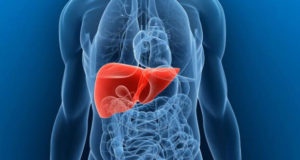 Lets start with a quick over view of the hepatitis viruses:
Lets start with a quick over view of the hepatitis viruses:
Hepatitis A is an acute illness that never becomes chronic. This virus is transmitted through direct contact with feces or indirect fecal contamination of food or water.
Hepatitis B is an acute illness for most individuals, however, approximately 8% of infected patients go on to develop chronic hepatitis B. This virus is transmitted through sexual contact, contaminated needles, and infected blood/body fluids.
Hepatitis C is an infectious disease caused by the hepatitis C virus that affects the liver. The virus spreads through contaminated blood or body fluids of an infected person. Hepatitis C isn’t spread through food, water, or by casual contact. Patients with chronic hepatitis C are at risk for developing cirrhosis, liver failure, and liver cancer.
Symptoms:
- Loss of appetite/ Nausea
- Fever
- Weakness / Tiredness
- Aching in the abdomen
- Dark urine/ light-colored stools
- Jaundice
There is currently no vaccine for hepatitis C and treatment of chronic hepatitis C, is usually by injections of interferon, as well as a “cocktail” of other medications.
Hepatitis D:
The hepatitis D virus can’t be contracted on its own. It can only develop in people who are already infected with the hepatitis B virus. Getting vaccinated against hepatitis B will provide protection against hepatitis D since hepatitis B must be present in order for hepatitis D virus to survive. The symptoms for hepatitis D are similar to those of hepatitis B.
Hepatitis D can be acute or chronic and is transmitted through exposure to the bodily fluids of an infected person. There’s currently no cure or vaccine for hepatitis D.
Hepatitis E:
Hepatitis E is a viral hepatitis that is found in countries that lack clean water and sanitation. The hepatitis E virus is a short-term, acute version of hepatitis, which is transmitted through indirect fecal contamination of food or water. The symptoms of hepatitis E resemble those of hepatitis A
Hepatitis E is not known to cause chronic infection, and most people with hepatitis E go on to a full recovery.
Hepatitis G:
The hepatitis G virus was recently discovered (resembles the hepatitis C virus), but more investigation and research is needed.
Ff you suffer from any of the symptoms we have listed, or travel etc. please contact your doctor or healthcare practitioner.





 Article on the Canadian Chiropractic Association Website
Article on the Canadian Chiropractic Association Website
